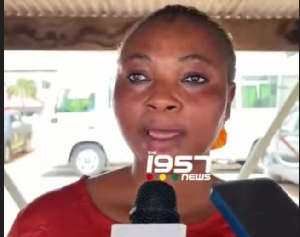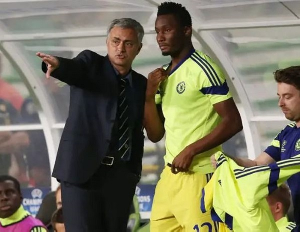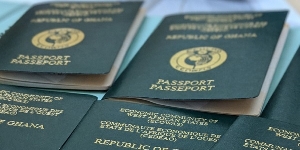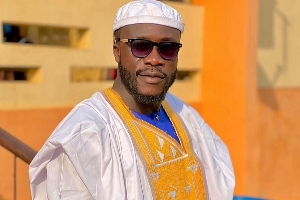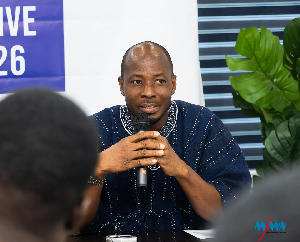For the Police Force to work as professionals to be accorded due respect by Ghanaians but not to be demoralized to stoop too low only for their morals to be boosted through inducement of bribes and corruption, I find the below suggested policy by a retired Police Superintendent very interesting and spot on. The nepotistic and politicized way of promoting officers within the police force without due diligence but on what Ghanaians call “whom you know” but not on merit of what you know, can partly be blamed for the lawlessness in the country leading to the creation of “I don’t fear huuu” human monsters instead of strong institutions to spur on economic development and nation building for the benefit of the rank and file.
Ghanaians had better cogitate about this policy statement which holds the solution to turning our now seemingly disgraced police officers who feed on open but shameless acceptance of bribes to not only help make ends meet but also, to break the laws to enrich themselves.
I tip my hat to the retired Police Superintendent Paul Avuyi who authored the adorable statement that has so much attracted my attention to wish to share it with the Ghanaian public. I always wish to bring out things that can help Ghanaians stand up to pursue policies of collective interests but not selfish interests bordering on breaches of the laws of the land by the so-called few elites who think to have chips on their shoulder.
Read Paul Avuyi/Supt. Rtd statement below
STATEMENT
By Paul Avuyi/Supt. Rtd.
Regulate IGP appointment and Officer Contracts
I wish to inform the Ghana Police Service Council that cross-sections of officers have begun questioning the rationale behind the continued stay in office of the current Inspector-General of Police (IGP) Mr Mohammed Alhassan. It was recalled that before the start of his terminal leave and subsequent compulsory retirement in January 2014, he was in November 2013 granted a two-year extension of service by the appointing authority, HE the President. It was the first time, in the 4th Republic, an IGP who has not retired from active service had his tenure extended before his retirement date was due. This bonus granted the IGP attracted widespread criticism.
It is worth noting that, some IGP appointments and officer contracts in the Police Service over the years have not only attracted severe criticisms but also generated anger, frustration and bitterness among the top hierarchy. This worrying development could be attributed to the fact that the obsolete, archaic and all-most forgotten, Ghana Police Service Act 350/1970, has no well-defined provisions which clearly spell out the eligibility criteria for appointment of the IGP and award of contract/extension of service for officers. This is a big flaw which must urgently engage the Council’s attention.
To buttress my point, let me take the Council through memory lane from the year 1990. When Mr C. K. Dewornu (IGP Rtd.) attained the then retiring age of 55years in December 1989, the following were the Commissioners of Police at post:
a. Mr Ernest Owusu-Poku -promoted Commissioner -7/4/87
b. Mr. G. S. Aggor-promoted Commissioner-1/1/90
c. Mr. S. E. Asare-promoted Commissioner -23/11/90
The expectation among sections of officers was that the most senior one among them was likely to be selected and appointed to replace him. Contrary to their expectations, Mr. J. Y. A. Kwofie who was promoted Deputy Commissioner on 1st December 1985 was appointed the IGP on 1st January 1990 above them. In 1996, Mr. Peter Nanfuri was also elevated above these three Senior Commissioners to replace Mr. Kwofie. After a very long humiliation, God’s grace finally smiled on Mr. Owusu-Poku in March, 2001, when he took over from his junior, Mr. Nanfuri.
In July, 2002, Mr. S. Owusu-Nsiah was similarly appointed IGP when the following Senior Deputy Commissioners, who were senior to him, were at post:-
a. Mr. Kwasi Nkansah (currently a member of the Police Council)
b. Mr. W. Sam-Awortwi
c. Mrs. Jane Donkor
It is interesting to note that the three were all promoted Deputy Commissioners on 1st December 1985 whilst Mr. Owusu-Nsiah was promoted Assistant Commissioner on 1st January 1989. Soon after Mr. Owusu-Nsiah’s appointment as IGP, Mrs. E. Mills-Robertson was later in the same year, appointed the 1st Deputy Inspector-General of Police above the aforementioned officers and few others who were senior to her. In the light of the foregoing examples, can the Council explain the eligibility criteria used in determining these appointments? Tongues are wagging among officers and questions are being asked as to why after the IGP’s appointment up till now no other officer has been appointed as the Deputy IGP. Has the post been abolished or is no longer valid? The Council must provide an answer. Furthermore, IGPs have since Ghana’s independence, been appointed without any specific term/tenure of office. A close analysis of such appointments since the time of the first Ghanaian head of the service, Mr. ERT Madjitey (of blessed memory) showed that some of them enjoyed longer periods in office; others had shorter periods. Few went home before attaining the compulsory retiring age. Mr. P. K. Acheampong and Mrs. Elizabeth Mills-Robertson are the recent examples. The current IGP was granted a two-year extension and currently there are some officers who have already attained the compulsory retiring age of 60years but are still at post on contracts.
There is no gainsaying the fact that Article 202(1) of the 1992 Constitution which states that the Inspector-General of Police shall be appointed by the President acting in consultation with the Council of State, has virtually created the avenue for officers to lobby for the post through Politicians, Paramount Chiefs, Council of State Members etc. Furthermore, this article which is silent on eligibility criteria ensures that anyone who is appointed is tied to the apron strings of the political party in power. No wonder from the year 2002, some officers in contention had their profiles published in some newspapers to market themselves as they lobby silently.
The manner in which appointments, promotions and contracts have been done over the years has tended to demoralize officers, destroy the esprit-de-corps, create an atmosphere of apathy, deep-seated anger and bitterness, frustrations and infighting among officers. This unhealthy state of affairs which has bedevilled the police service could have been put to rest, if the Article 202(1) Constitutional mandate was codified into the Police Service Act and expanded and broken into pieces to include eligibility criteria such age, educational qualification, moral character, rank, experience, competencies, achievements, proven integrity, term/tenure of office, job description as well as mode for nomination, selection and vetting so as to make it operational.
In the light of the foregoing facts, the Ghana Police Service is crying for a dynamic legislative framework that should regulate the appointment of IGP and award of contracts. A framework that should among other things provide for advertising the IGP vacancy, shortlisting of qualified applicants, interviews and selection of the most suitable one for Parliamentary vetting and approval before his/her appointment by the President in consultation with the Council of State. The status quo should give way to a major paradigm shift.
I therefore appeal to the Council to address these inadequacies in the Police Service Act so as to ensure greater sanity in the appointment of the IGP and award of contracts. All well-meaning Ghanaians and Police Officers should join me in this call.
P.N Avuyi/Supt Rtd.
18th October, 2015
The Secretary
Ghana Police Service Council
Accra
Opinions of Saturday, 13 October 2018
Columnist: Rockson Adofo



